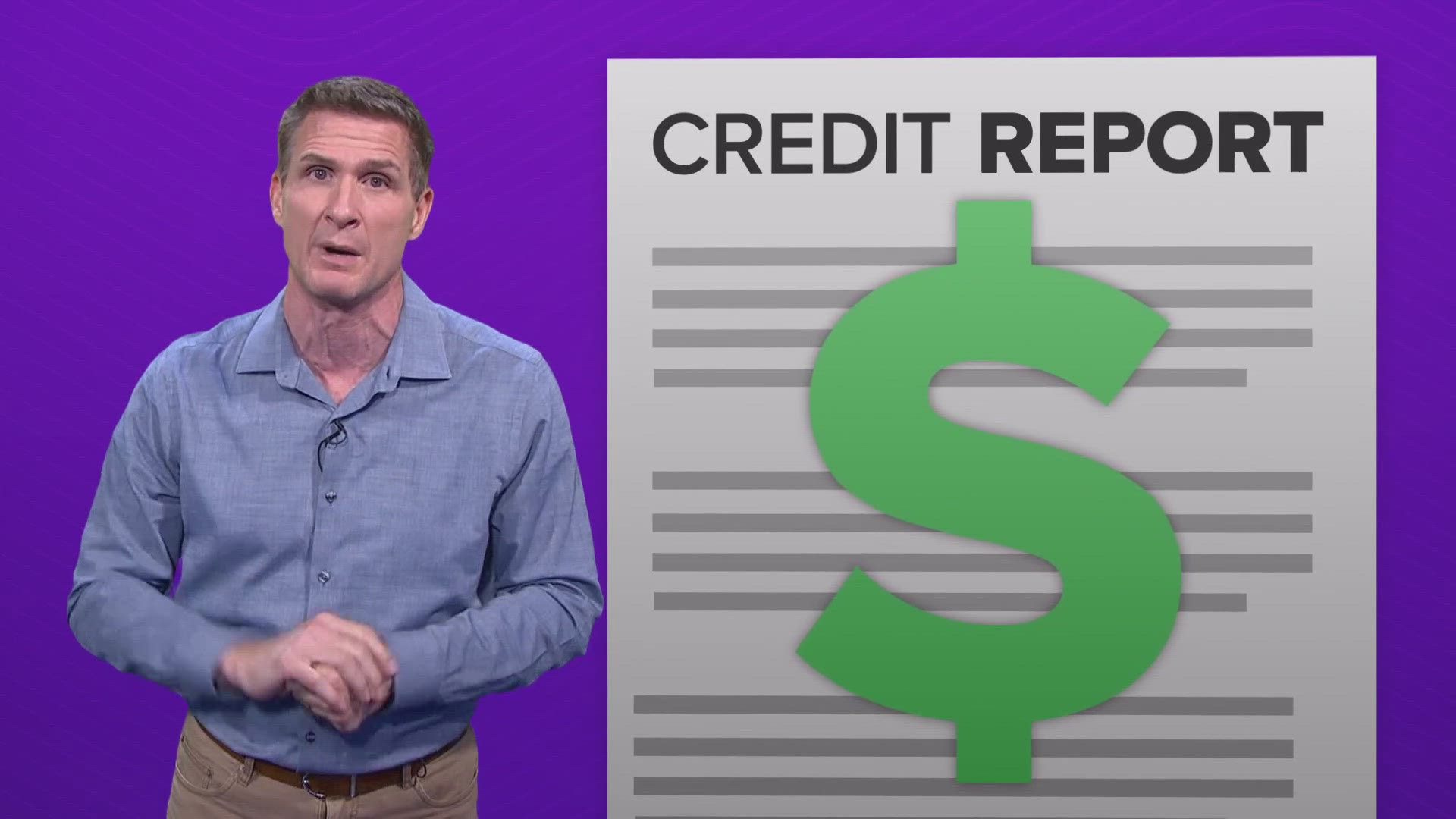DALLAS — If you are not looking at your credit report from time to time, you may not realize that there are mistakes or problems on it that could cost you. Many of us are just unaware, though. A survey last year found that 15.3 percent of us never even check our credit score.
And by the way, Texas has some of the lowest scores in the country. According to a Marketwatch report earlier this year, our average was 695 which is classified as a ‘good score’ as opposed to very good or exceptional one. Which designation you end up in really matters. I recently shopped for a random used truck on edmunds.com and used the tool there to estimate a loan payment.
The interest rate on that calculator for someone with ‘excellent’ credit (score of 750-850) was 6.994%. With ‘good’ credit (a 700-749 score), the estimated rate was 7.663%. But if you fell into the ‘fair’ credit category (score of 640-699), the rate that popped up was 13.119%. And for those with ‘poor’ credit (a score of 639 or less), the calculator suggested they should be prepared for a possible interest rate of 16.748 on a car loan.
Obviously, it is worth knowing your score and the credit report information behind it. Another reason to keep up with your credit report is because of the rash of data breaches that have plagued consumers. If one of those breaches leads to your identity being stolen, your credit can be wrecked, especially if you are not staying on top of it.
Lookout for errors!
You can now check your credit reports for free every week. Click here to learn more about that and to go to the site that allows that weekly access.
Another reason to be in the know is the potential for mistakes on your reports. Consumer Reports published an article after working with 4,000 people who checked their credit information. They reported that 44-percent of them who looked at their reports found at least one mistake and 27-percent found big errors, like accounts they didn't recognize or reports of late or missed payments for payments they had made on time.
Other errors can include accounts that you have paid off but that still appear as unpaid, the same loan listed multiple times, and even incorrect information that a debt of yours has been reported to collections.
This is all very important because your credit gets checked for a lot of things: when you apply for a loan, a mortgage, insurance, to rent an apartment, and some employers check it before hiring you.
If your credit report is giving an unflattering and incorrect reflection of you, it is problematic in big ways and needs to be corrected because that makes your credit report better and potentially saves you money.
Disputing something on your credit reports
You can dispute items in your credit report by reaching out to the three individual credit reporting agencies:
Just beware: Kiplinger reported a few years ago that many consumers who used a template or form letter to do that had their complaints dismissed by the credit reporting agencies. The Consumer Financial Protection Bureau (CFPB) has advice about filing disputes. Consumers who don’t get relief from the credit bureaus can also make complaints about that to the CFPB. But get in line…the number of complaints has been steadily increasing. The CFPB reports that last year they got more than a million such complaints about the three credit bureaus.
Alerts, locks, and freezes to protect your credit
Going back to the issue of data breaches, if you are concerned that someone might try to use your ill-gotten info to get a loan or a credit card using your information and you want to protect your credit report from that kind of identity theft nightmare, there are different steps you can take.
You can ask to have a free 1-year fraud alert on your credit report. You notify one of the three credit bureaus–TransUnion, Equifax, or Experian and they notify the other two. A fraud alert prompts creditors to take extra steps to verify it is in fact you applying for new credit in your name.
Another option: A credit lock which allows you to lock access to your credit report and unlock it when you need it, like when you are applying for credit. The drawback is that a lock is not free at all of the credit reporting agencies.
A much more extreme measure is a credit freeze, which is free. You must ask for this one at each of the three credit bureaus. It freezes your information so that your current creditors and you can still see your credit report. But a new creditor can’t see it, so if someone tries to use your information to take out a loan, hopefully they can’t.
You do have to remember to thaw the freeze when you are trying to get new credit. And the three agencies are required to unfreeze it within an hour of you requesting that. After you have taken care of your business, you can freeze it again.

